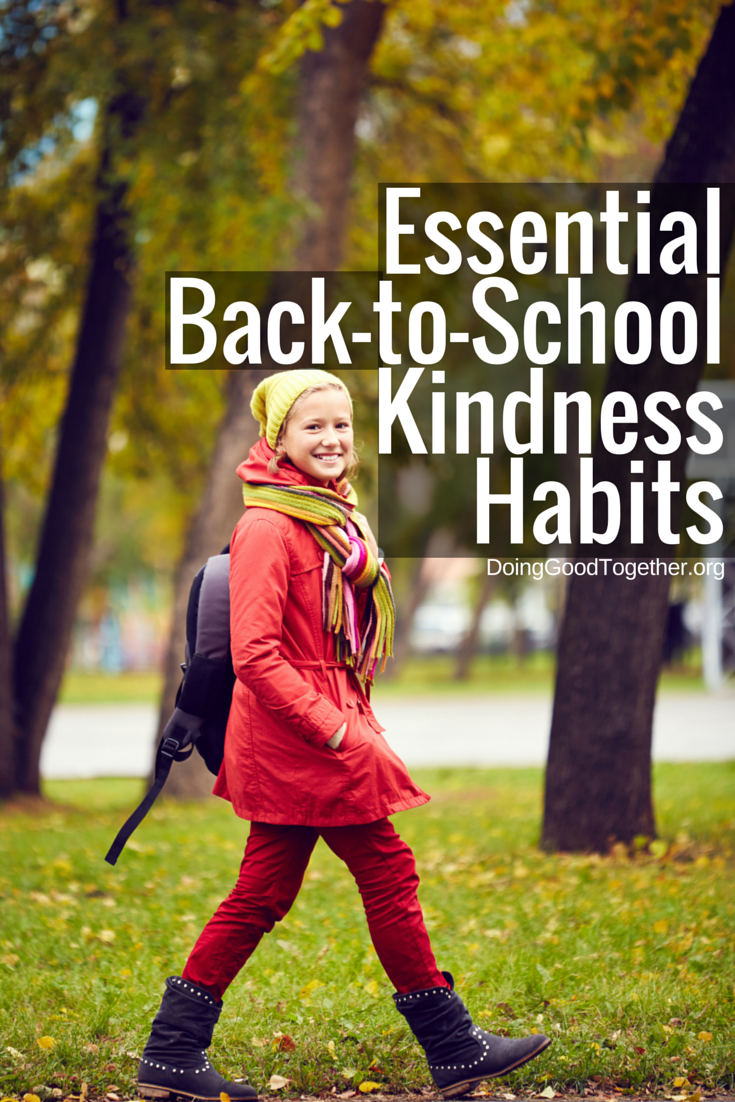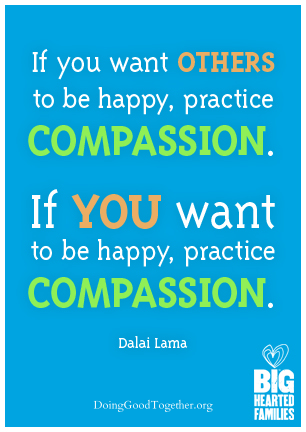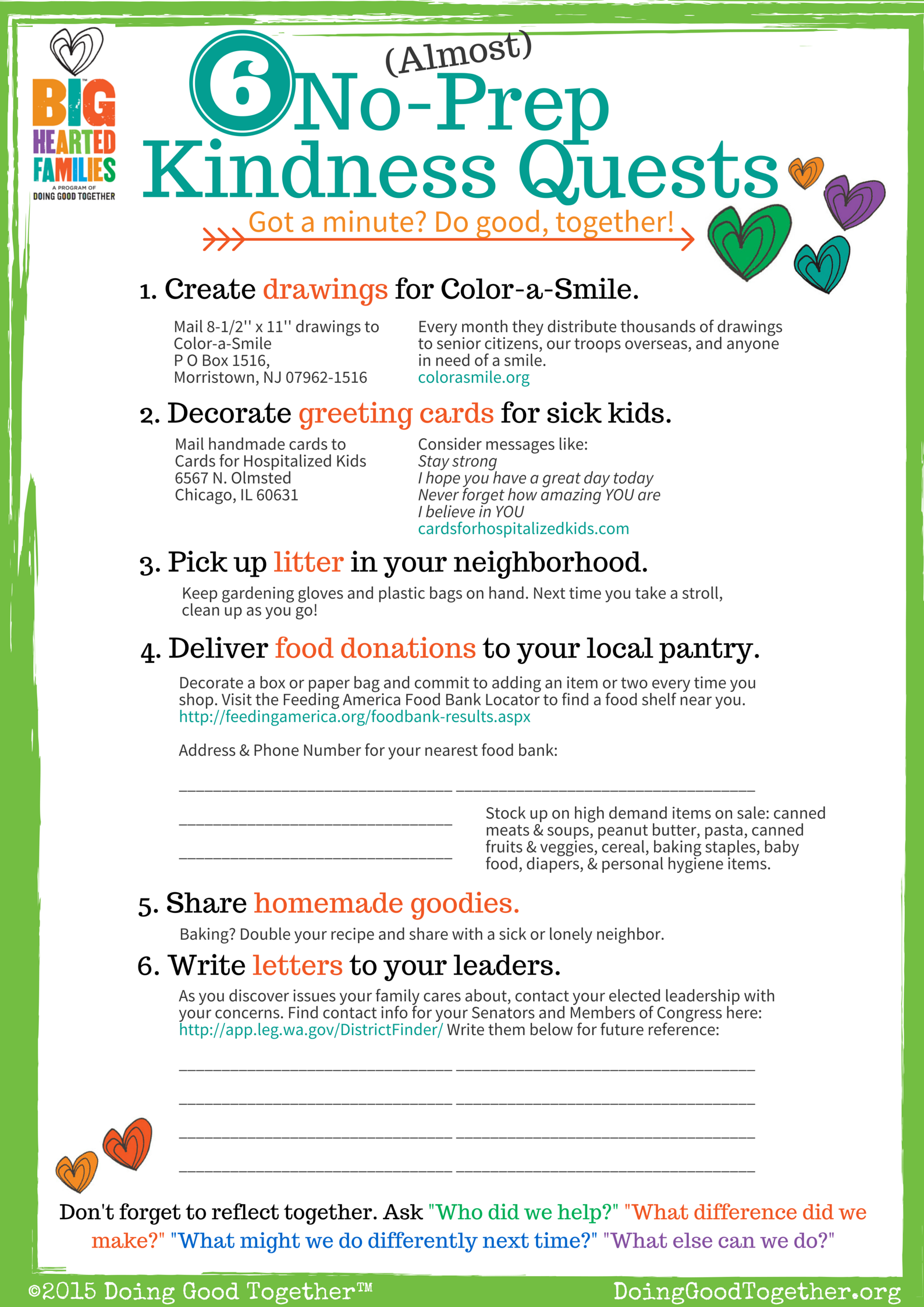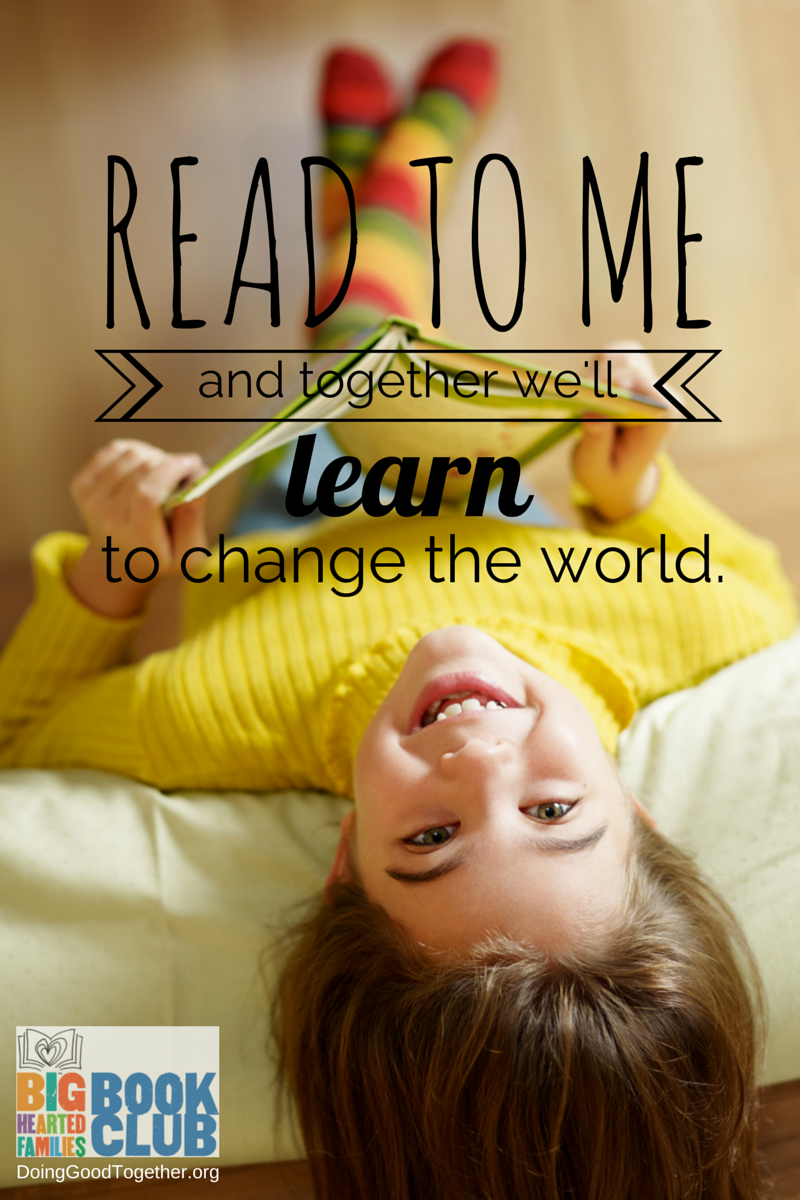This time of year is so full of high hopes and powerful motivation. Everyone in my family is more likely to stick with new habits and routines begun in September compared to our lofty but short-lived New Year's resolutions.
As the school year approaches, kids and parents alike seem to radiate nervous, hopeful anticipation. Kids are reconnecting with friends and settling in with new teacher expectations. We are negotiating the perfect combination of free time and after-school activities and striving to make the morning routine run as smoothly as possible. And through it all, the undercurrent in our thoughts is some variation of the same idea:
This year, I will be my best self.
Now is the perfect time to add habits of kindness to your family’s regular routine. After all, the natural shift in so many other routines makes it easier to slip in something new. Whether you master all five or just try one for now, you’ll find the habits below will...
Broaden your focus to include the wellness of others, keeping academic or social stress from exploding out of perspective;
Help you connect during the busiest weeks, by giving you a moment for daily reflection;
Keep service on your calendar, when it is oh-so-easy to relegate volunteering to the "some day" category.
Below are three kindness habits that will make the most of your back-to-school routine.
Please let us know if you have any of your own ideas to add!
1. Mindfulness: Make a pact with an everyday routine.
This easy-to-implement suggestion comes from A Pebble for Your Pocket Paperback by Thich Nhat Hanh, a wonderful guide to mediation and mindfulness for families. Simply choose a task from your everyday life, and resolve to be completely present, fully mindful as you do that one task. Sitting for a thirty minute mediation seems impractical with my busy family life, but giving myself permission to drink a cup of coffee mindfully is perfect. For my kids, they’ve chosen mindfulness on the stairs (as suggested in the book) and mindfulness while brushing teeth. During the assigned activity, they breathe deeply and move with intention. This trick has worked to calm nerves in our house for the past couple of years!
2. Kindness is Key: Celebrate small acts each day.
Whether you put up a bulletin board to call attention to them, or simply remember to ask about them during dinner or before bedtime, it’s important to emphasize kindness as much as “Did you have fun?” or “Share one thing you learned today.” Here are a few questions that may make sharing daily observations easier. By asking these questions every day, your kids will be more watchful for kindness.
- Who have you helped today? Who helped you?
- Did you make anyone smile today?
- Did you notice any friends struggling today? How could you help them tomorrow?
Parents, be sure you answer the questions too! Even if the kids don’t have an answer (and let’s face it, they often won’t), hearing your answers and observations lets them know the helping others is an important part of every day life.
3. Schedule Service: Make calendar space for kindness right NOW!
Like most parents, you've probably reviewed, revised, and edited almost every angle of your family calendar. But chances are, you've overlooked intentional acts of kindness and service. Now is the time to add them to your calendar as well. Here are some ideas:
Declare one Thursday of the month to be Thoughtful Thursday and scour our Pick-a-Project section for creative at-home kindness projects.
Host a Service Saturday each month. Invite friends or extended family to participate in a service activity. Find ideas by signing up for our popular newsletter and one of our local volunteer listings.
Is there an issue your family has already become passionate about? Look for a way to get more involved this year. Contact an organization working on that issue and ask about their needs.
Or sign up for a monthly service project to keep your family committed. The Box Project, One Book at a Time, and Sponsor a Family are all extremely rewarding ways to give as a family.
4. Be Prepared: Complete and post our worksheet for no-prep kindness.
Print this cheat sheet to keep kind ideas and contact info at the ready. When the mood strikes, or free time is available, you’ll be more motivated to sneak a service project in if you have some ideas ready to go.
5. Read Together: Story time builds empathy, imagination, and family connections.
Just because your child can read on his or her own, doesn't mean you have to give up the joy of sharing bedtime stories. Reading together continues to make headlines as a simple and effective way to build bonds and build empathy. If you're looking for ideas, check out our Read Together section for conversation starters and book lists.





